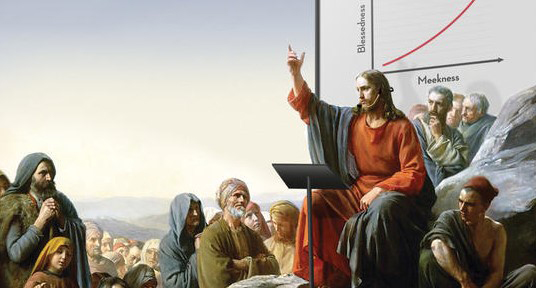
A legacy I’ve inherited from my father is a strong interest in current events; I’m fascinated by what happens in the world, but more specifically I’m an observer of how people respond to what happens in the world.
Over the last 49 years of my life there is no doubt that the world has changed considerably, perhaps none more so than with the role of the church within societies. When I was a child in Sunday School I well remember the stories of missionaries being sent to pagan countries, but today these same pagan countries have massive church growth and are now the ones sending missionaries to my [pagan] country of New Zealand.
One of the great challenges of church in the West is how we adapt to a new paradigm, one where Christianity is no longer a central pillar of the way we view the world and is not the lens through which people live their lives.
This leads me to a greater interest in current events, and in particular how the voice of Christians is promoted within public debate on topical issues, particularly when these issues challenge what have been societal norms. With sexuality and inclusivity being increasingly fluid and interchangeable, how do we effectively communicate a Christian world-view. In fact, what is a Christian worldview in these days of rapid progression?
On the 28th May 2019 there was an opinion-piece published on Fairfax’s online platform, Stuff. Written by Wellington-based priest Scottie Reeve the article challenged the aggressive media stance taken by public personalities such as Israel Folau, Brian Tamaki and Colin Craig over issues such as prostitution reform, civil unions and abortion. Likening their triumphalist posturing to that of the Roman emperor Constantine in 312AD, he suggested these men take their lead on who Jesus is from a very different place than he does.
Using such reformers as Mother Teresa, Martin Luther King Jr and William Wilberforce, Reeve suggested that followers of the carpenter from Nazareth, and indeed followers of all religions, have always been at their best when their influence comes from a place of humbly bearing the weight of a broken world together.
I support the conclusion that said the message Jesus brought was good news for the voiceless, and so is always suited best to gentle whispers of hope rather than brazen declarations of damnation.
The challenge
The challenge for any follower of the carpenter from Nazareth who has an opinion on the events of the world we see going on around us is how do we effectively communicate our Christian world-view with authenticity in an increasingly crowded market of ideas and ideologies?
I would suggest that the answer to that question has long been given to us. Paul writes to Christians in the city of Philippi, encouraging them to stand firm in the things of God. He expressly writes in Philippians Chapter 4 Verse 5 to let your gentleness be evident to all. This is not triumphalism but rather an attitude of humility and grace; and he wrote this guideline because he was struggling to see it.
This gentleness that Paul speaks of is indeed modelled by the Jesus himself. In the Gospel of Matthew Chapter 18 Verses 1-5 the story of Jesus’ interaction with little children is described. Childlike faith with all its innocence is shown to be the way to enter the Kingdom of Heaven. Furthermore, Paul writes to the church in Corinth and tells them that God chose the weak things of the world to shame the strong (1 Corinthians Chapter 1, Verse 27).
The messaging that comes through the Word of God is abundantly clear, let love for the other guide how we communicate and let God speak for himself through the presence of those of us empowered to be His hands and feet. In that way we grow into all that James imagined when he wrote in his letter (James Chapter 1, Verse 22) that followers of Jesus would not merely listen to the word, but do what it says.
May love, grace, compassion and a desire to reflect the Jesus we see in the Scriptures be our plumb line as we navigate new methods of communicating in the ever-changing world.
 Grant Harris is a reformed banker who has been the Senior Pastor of Windsor Park Baptist Church in Auckland, New Zealand, for ten years. Grant’s passionate about seeing people catch a glimpse of who they are in Christ and living out the difference that makes. He’s tried living according to the patterns of this world and found that they came up short, but he’s not completely there in trying to live according to God’s patterns. He’s a work-in-progress and probably always will be. You can contact Grant at grant.harris@windsorpark.org.nz
Grant Harris is a reformed banker who has been the Senior Pastor of Windsor Park Baptist Church in Auckland, New Zealand, for ten years. Grant’s passionate about seeing people catch a glimpse of who they are in Christ and living out the difference that makes. He’s tried living according to the patterns of this world and found that they came up short, but he’s not completely there in trying to live according to God’s patterns. He’s a work-in-progress and probably always will be. You can contact Grant at grant.harris@windsorpark.org.nz

Grant Harris is a reformed banker who has been the Senior Pastor of Windsor Park Baptist Church in Auckland, New Zealand, for eleven years. Grant’s passionate about seeing people catch a glimpse of who they are in Christ and living out the difference that makes. He’s tried living according to the patterns of this world and found that those patterns came up short. He’s still a work-in-progress and always will be. You can contact Grant at grant.harris@windsorpark.org.nz.